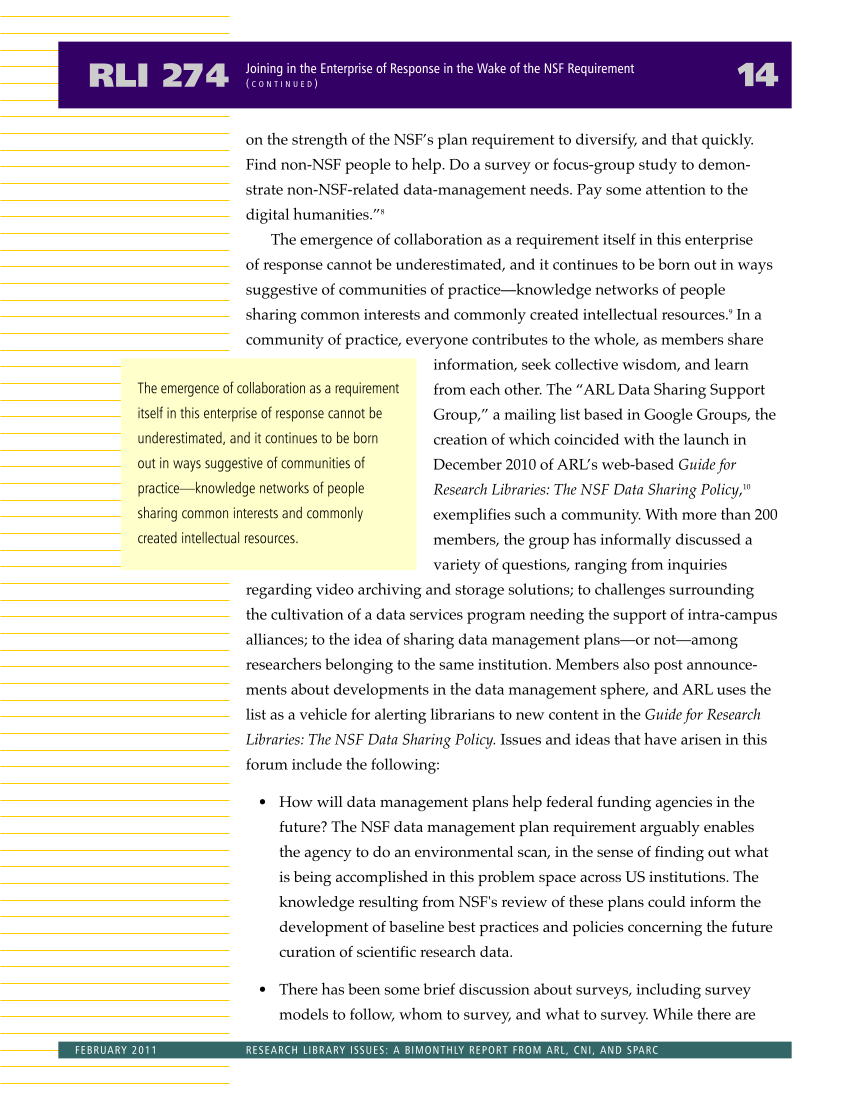on the strength of the NSF’s plan requirement to diversify, and that quickly. Find non-NSF people to help. Do a survey or focus-group study to demon- strate non-NSF-related data-management needs. Pay some attention to the digital humanities.”8 The emergence of collaboration as a requirement itself in this enterprise of response cannot be underestimated, and it continues to be born out in ways suggestive of communities of practice—knowledge networks of people sharing common interests and commonly created intellectual resources.9 In a community of practice, everyone contributes to the whole, as members share information, seek collective wisdom, and learn from each other. The “ARL Data Sharing Support Group,” a mailing list based in Google Groups, the creation of which coincided with the launch in December 2010 of ARL’s web-based Guide for Research Libraries: The NSF Data Sharing Policy,10 exemplifies such a community. With more than 200 members, the group has informally discussed a variety of questions, ranging from inquiries regarding video archiving and storage solutions to challenges surrounding the cultivation of a data services program needing the support of intra-campus alliances to the idea of sharing data management plans—or not—among researchers belonging to the same institution. Members also post announce- ments about developments in the data management sphere, and ARL uses the list as a vehicle for alerting librarians to new content in the Guide for Research Libraries: The NSF Data Sharing Policy. Issues and ideas that have arisen in this forum include the following: • How will data management plans help federal funding agencies in the future? The NSF data management plan requirement arguably enables the agency to do an environmental scan, in the sense of finding out what is being accomplished in this problem space across US institutions. The knowledge resulting from NSF's review of these plans could inform the development of baseline best practices and policies concerning the future curation of scientific research data. • There has been some brief discussion about surveys, including survey models to follow, whom to survey, and what to survey. While there are RLI 274 14 Joining in the Enterprise of Response in the Wake of the NSF Requirement ( C O N T I N U E D ) FEBRUARY 2011 RESEARCH LIBRARY ISSUES: A BIMONTHLY REPORT FROM ARL, CNI, AND SPARC The emergence of collaboration as a requirement itself in this enterprise of response cannot be underestimated, and it continues to be born out in ways suggestive of communities of practice—knowledge networks of people sharing common interests and commonly created intellectual resources.






















